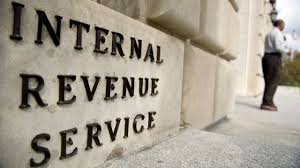
In Revenue Procedure 2016-47, posted on IRS.gov, the IRS explained how eligible taxpayers, encountering a variety of mitigating circumstances, can qualify for a waiver of the 60-day time limit and avoid possible early distribution taxes. In addition, the revenue procedure includes a sample self-certification letter (see below) that a taxpayer can use to notify the administrator or trustee of the retirement plan or IRA receiving the rollover that they qualify for the waiver.
Normally, an eligible distribution from an IRA or workplace retirement plan can only qualify for tax-free rollover treatment if it is contributed to another IRA or workplace plan by the 60th day after it was received. In most cases, taxpayers who fail to meet the time limit could only obtain a waiver by requesting a private letter ruling from the IRS.
A taxpayer who missed the time limit will now ordinarily qualify for a waiver if one or more of 11 circumstances, listed in the revenue procedure, apply to them. They include a distribution check that was misplaced and never cashed, the taxpayer’s home was severely damaged, a family member died, the taxpayer or a family member was seriously ill, the taxpayer was incarcerated or restrictions were imposed by a foreign country.
Ordinarily, the IRS and plan administrators and trustees will honor a taxpayer’s truthful self-certification that they qualify for a waiver under these circumstances. Moreover, even if a taxpayer does not self-certify, the IRS now has the authority to grant a waiver during a subsequent examination. Other requirements, along with a copy of a sample self-certification letter, can be found in the revenue procedure.
The IRS encourages eligible taxpayers wishing to transfer retirement plan or IRA distributions to another retirement plan or IRA to consider requesting that the administrator or trustee make a direct trustee-to-trustee transfer, rather than doing a rollover. Doing so can avoid some of the delays and restrictions that often arise during the rollover process.
The example certification from the IRS is below:
Certification for Late Rollover Contribution
Name
Address
City, State, ZIP Code
Date: ______________________
Plan Administrator/Financial Institution
Address
City, State, ZIP Code
Dear Sir or Madam:
Pursuant to Internal Revenue Service Revenue Procedure 2016-47, I certify that my contribution of $ [ENTER AMOUNT] missed the 60-day rollover deadline for the reason(s) listed below under Reasons for Late Contribution. I am making this contribution as soon as practicable after the reason or reasons listed below no longer prevent me from making the contribution. I understand that this certification concerns only the 60-day requirement for a rollover and that, to complete the rollover, I must comply with all other tax law requirements for a valid rollover and with your rollover procedures.
Pursuant to Revenue Procedure 2016-47, unless you have actual knowledge to the contrary, you may rely on this certification to show that I have satisfied the conditions for a waiver of the 60-day rollover requirement for the amount identified above. You may not rely on this certification in determining whether the contribution satisfies other requirements for a valid rollover.
Reasons for Late Contribution
I intended to make the rollover within 60 days after receiving the distribution but was unable to do so for the following reason(s) (check all that apply):
___ An error was committed by the financial institution making the distribution or receiving the contribution.
___ The distribution was in the form of a check and the check was misplaced and never cashed.
___ The distribution was deposited into and remained in an account that I mistakenly thought was a retirement plan or IRA.
___ My principal residence was severely damaged.
___ One of my family members died.
___ I or one of my family members was seriously ill.
___ I was incarcerated.
___ Restrictions were imposed by a foreign country.
___ A postal error occurred.
___ The distribution was made on account of an IRS levy and the proceeds of the levy have been returned to me.
___ The party making the distribution delayed providing information that the receiving plan or IRA required to complete the rollover despite my reasonable efforts to obtain the information.
Signature
I declare that the representations made in this document are true and that the IRS has not previously denied a request for a waiver of the 60-day rollover requirement with respect to a rollover of all or part of the distribution to which this contribution relates. I understand that in the event I am audited and the IRS does not grant a waiver for this contribution, I may be subject to income and excise taxes, interest, and penalties. If the contribution is made to an IRA, I understand you will be required to report the contribution to the IRS. I also understand that I should retain a copy of this signed certification with my tax records.
Signature: ________________________________
